#james wharton
Text
James: What did you guys get in your yearbook?
Charlie: 'Prettiest Smile'
Kimi: 'Nicest Personality'
Conrad: 'Most likely to start a bar fight'
Rafael: 'Least likely to start a bar fight, but most likely to win one'
#james wharton#charlie wurz#andrea kimi antonelli#conrad laursen#rafael camara#incorrect prema#prema racing#incorrect quotes#prema 2022
67 notes
·
View notes
Text
Dino and James 👁️👄👁️

5 notes
·
View notes
Text
things in 19th century novels that bring me an immense amount of joy
a passive aggressive pianoforte moment
any country dance scene
flower symbolism
the love interest telling the heroine he loves her mid panic attack
a women rejecting a marriage proposal from a man she hates
hands
when lore gets dropped via letter
and, most importantly, the First Name Drop™
#trust me I’m an expert I’m getting my MA in lit#tales from an english major#jane austen#p&p#victorian literature#charlotte bronte#jane eyre#north and south#elizabeth gaskell#charles dickens#henry james#edith wharton#emily brontë#wuthering heights#little women#louisa may alcott#jo march#dylan.txt
4K notes
·
View notes
Text


Front and center, as she should. HOLY—🧎🏻♀️
Source
#UPDATE: Laysla just shared another one!#She looks sooo good 🫦#Thank you for this Laysla#Special Ops: Lioness#Laysla De Oliveira#Jill Wagner#Cruz Manuelos#Bobby#LaMonica Garrett#James Jordan#Jonah Wharton#Austin Hébert#SOL edit#My edit
98 notes
·
View notes
Text
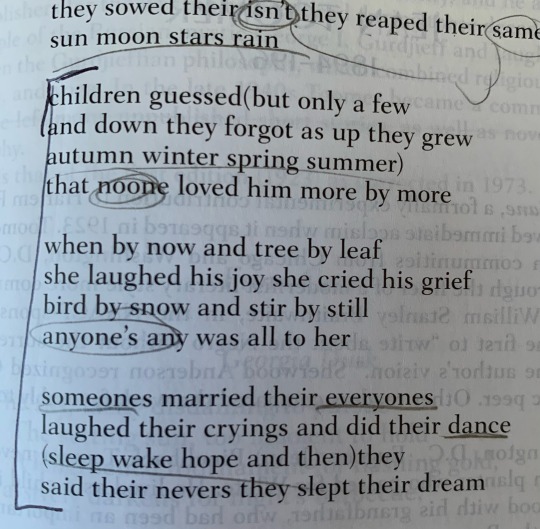


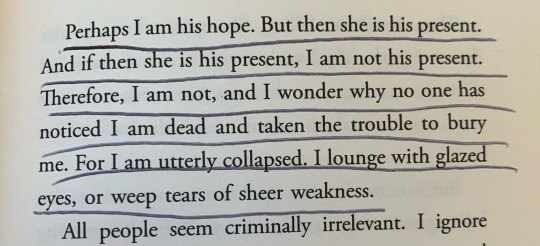



some of my favourite musings on romantic (and sometimes obsessive) love for february and valentines
e.e. cummings / edith wharton / shirley hazzard / elizabeth smart / james baldwin / leonard cohen / marie howe
#web weaving#words#ee cummings#edith wharton#shirley hazzard#elizabeth smart#james baldwin#leonard cohen#marie howe#the age of innocence#the transit of venus#giovanni’s room#literature#love#valentines#ww
69 notes
·
View notes
Text
"THE BUCCANEERS" (1995) Review
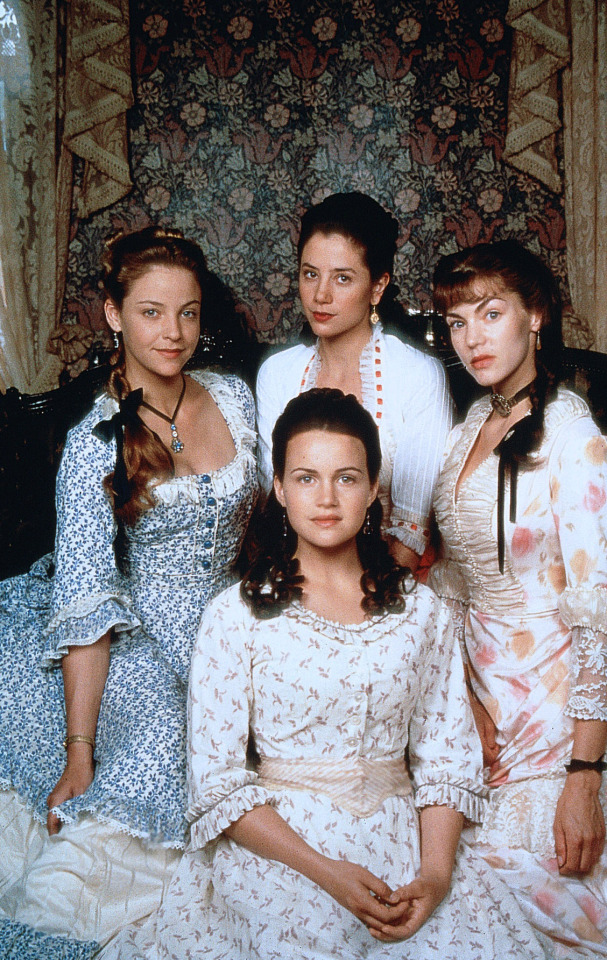
"THE BUCCANEERS" (1995) Review
Years ago, I had anticipating watching for the first time, "THE BUCCANEERS", the 1995 television adaptation of Edith Wharton’s last novel. After all, I have been a major fan of "THE AGE OF INNOCENCE", Martin Scorcese’s 1993 adaptation of Wharton’s award-winning 1920 novel for years. But my eager anticipating nearly ebbed away, when I discovered that "THE BUCCANEERS" only managed to rouse a lukewarm reception from many television critics.
The five-part miniseries turned out to be an unusual production from the BBC. One, it was based upon a novel written by an American author – namely Edith Wharton. There have been other British television productions based upon the literary works of an American, but they are very rare. Another interesting aspect of Wharton’s "The Age of Innocence" is that the author did not finish it, due to her death at the age of 75. Fifty-six years later, Wharton scholar Marion Mainwaring finished the novel, which was published by Viking. Around the same time, the BBC hired screenwriter Maggie Wadey to adapt and finish the novel for the television adaptation. As a result the novel has two slightly different endings. Another aspect of this miniseries that struck me as unusual was that instead of hiring British actresses to portray four of the five leads, the BBC hired four Amercian actresses – Carla Gugino, Mira Sorvino, Alison Elliott and Rya Kihlstedt.
The plotline for "THE BUCCANEERS" is very simple. The story begins in 1873 Newport, Rhode Island; in which two sisters of a noveau riche businessman and their two friends are introduced – Virginia "Ginny" and Annabel "Nan" St. George, Conchita "Connie" Closson and Elizabeth "Lizzy" Elmsworth. Whereas the Brazilian born Conchita manages to snare Lord Richard Marabel, the dissolute second son of the Marquess of Brightlingsea, the other three girls struggle to find a place amongst the members of old New York society. When a prank committed by Ginny and Lizzy backfires, Nan’s English governess Laura Testvalley proposes to Mrs. St. George that Ginny and Nan have a London season amongst the upper-class British. She argues that their acceptance by the British high society would assure them a place amongst the upper-class New Yorkers. Due to their friendship with the vibrant Conchita, Virginia and Annabel are introduced to Lord Richard’s family – the impoverished Brightlingseas and their neighbors, the equally impoverished Sir Helmsey Thwaite and his son Guy. As they get settled to conquer British society, Ginny and Nan are surprised by the arrival of Lizzy, who has arrived in Britain for her own season.
Although the girls’ original purpose for visiting Britain was to enjoy a London season, a friend of Laura Testvalley has other plans for them. Thirty years earlier, the American born Jackie March had been engaged to a British aristocrat – namely the very young Lord Brightlingsea, who abandoned her at the altar. Miss March remained in Britain and became something of a sponsor/matchmaker for young society girls. It was Miss March who recommended that the visiting Americans rent a villa owned by one of her former sponsors, Lady Idina Hutton. She also recommended that the girls do more than just enjoy a London season in order to impress old New York society. She recommended that they consider marrying into upper-class British society. Miss March’s plans eventually come to fruition:
*Virginia or namely her father’s wealth attracted the attention of Lady Idina Hutton’s lover and Lord Richard’s older brother, Lord Seadown.
*Lizzy ended up marrying a self-made aspiring politician named Hector Robinson
*Annabel fell in love with Guy Thwaite, but ended up marrying the very wealthy Julian Folyat, Duke of Trevennick; when Guy left Britain to find his fortune in South America.
As I had stated earlier, most critics were not initially kind to "THE BUCCANEERS". Most British critics dismissed it as a costumed soap opera of the second-rate kind, with an ending that had been "Hollywoodized" (happy ending). These same critics also accused the miniseries of mocking the British aristocracy. The American critics, at least those who considered themselves Wharton purists, accused the miniseries’ screenwriter, Maggie Waddey, of changing the elements of the author’s story by including topics such as marital rape and homosexuality. Personally, I found all of these arguments irrelevant. Most dramas about personal lives – whether first-rate or not – tend to possess soap-operish elements. This hostility toward soap operas has always struck me as infantile and irrelevant. And why are all Hollywood productions guilty of having a happy ending, when that has not been the case? Other literary works and their adaptations have mocked the British aristocracy. Why was there such a big hullabaloo over how the aristocracy was portrayed in this particular story? As for the additions of marital rape and homosexuality, these elements did no harm to the story, as far as I am concerned. And I must admit that I have become increasingly weary of demands that all movie or television adaptations should be completely faithful to their literary source. Such demands strike me as impractical.
My complaints about "THE BUCCANEERS" are very few. In fact, I only have two. The first time I ever saw actress Gwen Humble on the television screen was in a miniseries called "THE REBELS", an adaptation of a John Jakes novel. Although I had no problems with her performance in that particular production, I must admit that I had a problem with her performance as Virginia and Annabel’s mother, Mrs. St. George. I understand that Mrs. St. George was supposed to be a shallow and somewhat silly woman. But I feel that Humble went a little too far in conveying those certain traits. Her performance struck me as exaggerated and a little amateurish. Another problem I had with "THE BUCCANEERS" is a rather minor one. It has to do with Virginia’s husband, Lord Seadown. His father is a marquess – which is ranked somewhere between a duke and an earl (count). As the eldest son, he is entitled to a courtesy title. But what was Seadown’s courtesy title? His younger brother was called Lord Richard Marable, which is correct for the younger son of a marquess. The courtesy title for the eldest son of a marquess is usually an earldom – namely Earl of Something. Was Seadown’s name a courtesy title - Earl of Seadown? Or was he supposed to be regarded as Lord Seadown Marable? If the latter, what was the courtesy title he used? I found it all slightly confusing.
However, "THE BUCCANEERS" has been one of my all time favorite miniseries, ever since I first saw it. And there is so much about it that has made it such a favorite of mine. One, producer-director Philip hired a production crew that did justice to Wharton’s story. The miniseries featured some elegant locations that served as the story’s various settings. Some of these locations included Castle Howard, Burghley House and Newport, Rhode Island. I also enjoyed Remi Adefarasin’s photography. It had a deep and rich color that did justice to a story filled with emotions and passion. Colin Towns provided an elegant and entertaining score that remained memorable for me, since the first time I heard it years ago. But it was Rosalind Ebbutt’s costumes that really blew my mind. She provided exquisitely outfits that were beautiful and elegant – especially those for the lead actresses. More importantly, her costumes not only reflected the fashions wore by the American and British upper-classes during the 1870s, they also reflected the change in the main characters’ status and in women’s fashion throughout the decade, as the following photographs show:
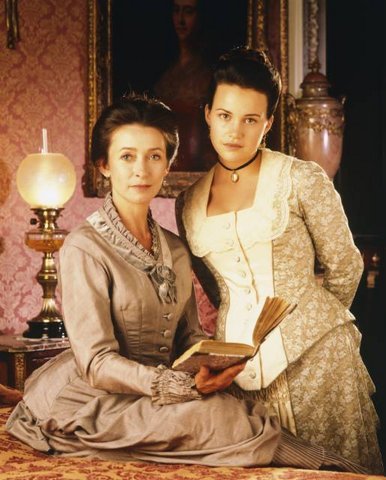
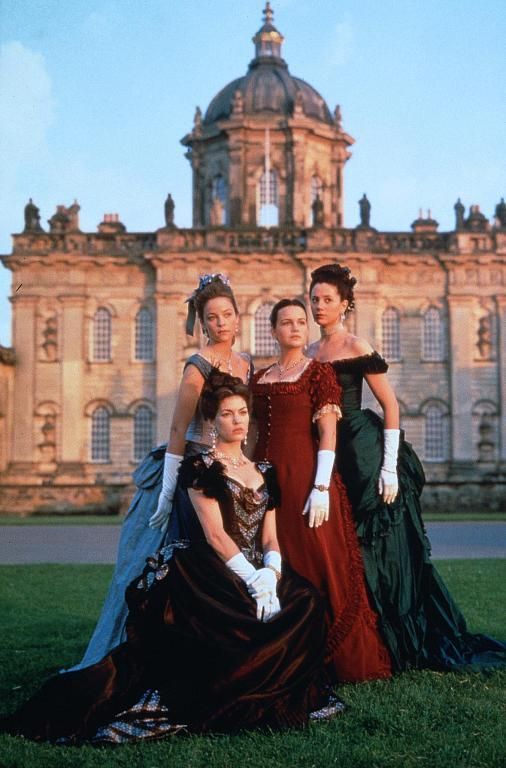
Another one of the major virtues of "THE BUCCANEERS" turned out to be its cast. Wharton’s novel is filled with interesting characters. And Saville and his casting director did an excellent job in finding the right actor/actress for the right role. Aside from Gwen Humble’s portrayal of Mrs. St. George, there were so many first-rate performances in the miniseries that it would take me another article just to describe them. But the supporting performances that stood out for me came from the likes of Sheila Hancock, whose portrayal of the Dowager Duchess of Trevenick struck me as an expert mixture of cool haughtiness, sharp wisdom and long suffering; Michael Kitchen, who skillfully conveyed both the charming and shallow nature of Sir Helmsley Thwaite; Jenny Agutter, who was excellent as Lady Idina Hatton, Lord Seadown’s insecure and tragic mistress; Dinsdale Landen and Rosemary Leach, who both portrayed the Marquess and Marchioness of Brightlingsea with a mixture of class haughtiness, charm and great humor; Peter M. Goetz, who seemed to personify the self-made 19th century American businessman; and Connie Booth, who gave one of her best performances as the ambitious and sharp-minded Jackie March.
Richard Huw gave a humorous, yet intelligent performance as Hector Robinson, the ambitious young Member of Parliament who ends up winning Lizzy Elmsworth’s hand. And Mark Tandy was pretty solid as Lord Brightlingsea’s heir, the mercenary Lord Seadown who marries Virginia for Colonel St. George’s money. I was very impressed by Ronan Vibert’s portrayal of the dissolute Lord Richard Marabel, Conchita’s husband and Lord Brightlingsea’s younger son. But the two male performances that really impressed me came from Greg Wise and James Frain. The latter portrayed the haughty Julian Duke of Trevenick, who manages to win the hand Annabel St. George (much to the surprise of her governess), before alienating her with his lack of skills as a husband. Frain could have easily portrayed Julian as a one-note villain, especially when one considers the act of marital rape that his character committed against his wife in Episode Three. Being the skillful actor that he is, Frain conveyed all facets of Julian’s personality – both the good and the bad. And his assertion near the end of Episode Four that he is "not a monster" may have been one of Frain’s finest moments on screen. Greg Wise probably gave one of what I consider to be three of his best career performances in his portrayal of Guy Thwaite, Sir Helmsley’s only son. His Guy could have been one of your typical handsome, romantic heroes. But Wise did an excellent job in revealing how Guy’s insecurities regarding his lack of funds led him to lose Annabel to Julian. And he also conveyed how in the throes of love, Guy could be a slightly selfish man with no thought to how his "friendship" with Annabel might affect her social standing. Thanks to Wise’s performance, his Guy Thwaite proved to be equally complex.
We finally come to our five leads in the story – the four American heiresses and Annabel St. George’s English governess, Laura Testvalley. I have noticed that whenever someone brings up Cheri Lunghi, he or she inevitable brings up her role in "THE BUCCANEERS", the Anglo-Italian governess Miss Testvalley. I certainly cannot blame them. Lunghi proved to be the glue that held the story together, skillfully serving as its eyes and narrator at the beginning of each episode. Rya Kihlstedt gave a charming and solid performance as the blunt and level-headed Lizzy Elmsworth, who seemed more impressed by Hector Robinson’s ambitions than any aristocrat. She and Richard Huw managed to create a very credible screen presence. Alison Elliott’s Virginia St. George proved to be one of the most complicated characters in the story. Thanks to the actress’ excellent performance, she conveyed Virginia’s haughtiness and obsession with being connected to an aristocratic family; and at the same time, garnered sympathy by expressing the character’s love for her husband and disappointment upon discovering that he had only married her for money. And less than a year before she won her Academy Award, Mira Sorvino proved just how first-rate she could be as an actress in her portrayal of the Brazilian-born Conchita Closson. Her Conchita was a delicious and complicated minx torn by her desire for the luxurious and glamorous lifestyle of the British aristocracy and her contempt for what she deemed as their cold personalities. If Cheri Lunghi’s Laura Testvalley was the story’s eyes and narrator, Carla Gugino’s Annabel St. George aka the Duchess of Trevenick proved to be the heart and soul of "THE BUCCANEERS". Thanks to Gugino’s superb performance, the actress literally transformed Nan from the childish and naïve sixteen year-old girl, to the bewildered nineteen year-old bride and finally to the weary twenty-one year-old wife, disappointed by a failed marriage and in love with another man. There are times that I wondered if any other actress could have accomplished what she did. It seemed a pity that none of the major television and critics awards organizations never acknowledged her performance with a nomination.
Many critics have heaped a great deal of scorn upon Maggie Wadey’s adaptation of Wharton’s novel. Frankly, I believe this scorn was undeserved. I may not have been that impressed by her other works, but I honestly believe that "THE BUCCANEERS" was her masterpiece by far. Many accused her of failing to adapt Wharton’s "spirit" or "style" by including marital rape and homosexuality into the story. Since both topics where added without any tasteless sensationalism, I had no problems with these additions. And Wadey also made sure to give the story’s happy ending something of a bittersweet edge. Despite leaving Julian for the man she loved, Guy Thwaite, Annabel found herself ostracized by society and especially by her sister Virginia – as was proven at the Marquess of Brightlingsea’s funeral. Annabel and Guy’s elopement also left the latter disinherited by his father, Sir Helmsley. And her assistance in the elopement left Laura Testvalley rejected by Sir Helmsley and unemployed. So much for the "happy ending". Because the story revolved around four American heiresses marrying into the British upper-classes, "THE BUCCANEERS" also proved to be an interesting study in culture clash between two Western nations in the mid-to-late nineteenth century. But in all of the articles I have read about the miniseries, I find it surprising that no one has bothered to noticed that the topic of the continuing decline of the British aristocracy was also mentioned . . . more than once. It almost became a secondary theme. The Brightlingseas’ interest in the St. George family certainly seemed an indication that they were more willing to marry money – regardless from where it came – rather than find a way to earn it. This seemed like a far cry from Guy Thwaite, who preferred to create his own wealth with two years in South America, rather than marry it. And the character of the Marquess of Brightlingsea literally became a symbol of the aristocracy’s decline in scenes like a heated conversation between him and Hector Robinson; and a speech by Guy Thwaite to the House of Commons during a montage that featured of his death.
Now that I think about it, why should I care what others feel about "THE BUCCANEERS"? Every time I watch it, I always fall in love with the miniseries over and over again. Maggie Wadey wrote an excellent adaptation of Wharton’s novel – probably her best work or masterpiece, as far as I am concerned. Led by the likes of Carla Gugino, Cheri Lunghi, Greg Wise and James Frain, the cast proved to be first-rate. And Philip Saville did justice to both the cast and Wadey’s screenplay in his direction of the miniseries.
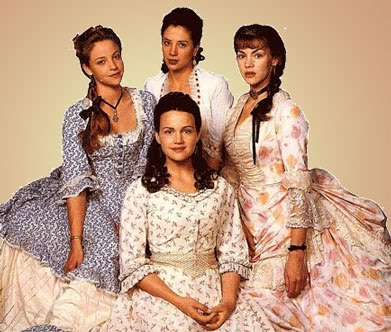
#edith wharton#edith wharton's the buccaneers#the buccaneers#the buccaneers 1995#maggie wadey#philip saville#carla gugino#cheri lunghi#greg wise#james frain#alison elliott#mira sorvino#rya kihlstedt#mark tandy#ronan vibert#richard huw#dinsdale landen#rosemary leach#gwen humble#peter michael goetz#conchata ferrell#michael kitchen#elizabeth ashley#james rebhorn#sheila hancock#jenny agutter#gilded age#victorian age#emily hamilton#connie booth
7 notes
·
View notes
Text
writers who would absolutely kill on ao3 and livejournal kink memes
27 notes
·
View notes
Text
Trailer: “Special Ops: Lioness” (2023)
“Special Ops: Lioness” (2023)
Paramount+ has now premiered the full-length trailer for Taylor Sheridan’s latest original series “Special Ops: Lioness” for the service.
It joins Sheridan’s expanding slate at Paramount which includes “Yellowstone,” “1883,” “1923,” “Tulsa King” and “Mayor of Kingstown” along with the “Lawmen: Bass Reeves” and an upcoming “Yellowstone” spin-off with Matthew…

View On WordPress
#Austin Hébert#Dave Annable#DVDReviews#Hannah Love Lanier#James Jordan#Jill Wagner#Jonah Wharton#LaMonica Garrett#Laysla De Oliveira#nicole kidman#Special Ops: Lioness#Special Ops: Lioness trailer#Stephanie Nur#taylor sheridan#zoe saldana
7 notes
·
View notes
Photo

My 2023 TBR (11/?)
I have two of Mary Steward’s novels and I’ve been meaning to read them.
I wanted to read Edith Wharton’s Summer. I have two unread novels by her. My copy of Age of Innocence was in an earlier photo for this shoot.
The Bostonians by Henry James is supposedly the literary reference for The Boston Marriage (!!!). So I thought maybe I should read it?
The Grass Widow by Nanci Little is sapphic and historic fiction (I think it’s a wild west/American frontier story). I saw a review on here, actually which prompted me to buy a copy.
#books#bookblr#classics#mary steward#the ivy tree#airs above the ground#edith wharton#summer#henry james#the bostonians#nanci little#tbr#the grass widow#tbr 2023#want to read#I have so many unread books in my hoard...#most of them I bought used#I'm still trying to figure out a number to put for my 2023 challenge...75 is what I'm feeling#I miss doing more than 100 books a year but I already know that I'm in grad school and have my own projects that I need time for#mychatter
10 notes
·
View notes
Note
for the English curriculum ask: the importance/significance of tragedy
So obviously there are lots of different ways you could go with this. I considered trying to assemble a more formal, chronological study of literary tragedy, but unfortunately I don’t have nearly the knowledge of Greek or Restoration theatre for that. Thus, I decided against trying to be clever and just kinda went with a combination of obvious texts and personal favorites. Enjoy.
Section 1: How to read a tragedy
“To Build a Fire,” Jack London – in class day one, because it’s a really great case study where you can see all the musculature of the tragic form, so to speak, in a very bare-bones manner.
Academic literature on the form and function of the literary tragedy and adjacent genres—don’t have anything in particular in mind for this, but there's a mountain of great stuff out there
The Death of Ivan Ilyich, Leo Tolstoy—gives a really great framework for understanding the psychology of protagonists in tragedy
Personal essay/journal assignment: What do you, personally get out of reading tragic literature?
Section 2: Family tragedies
Elektra, Sophocles (Actually I'm mostly familiar with Strauss's opera, but I mean obviously I need the Greeks in here.)
King Lear, Shakespeare
And Quiet Flows the Don, Mikhail Sholokhov
The Diamond as Big as the Ritz, F. Scott Fitzgerald
The Sound and the Fury, William Faulkner
Essay: Analyze the role of God or fate in at least one of the texts from this section. To what degree is the family’s decline beyond human control? Does embracing God/fate provide any benefit to the members of the family that do so?
Section 3: Revenge tragedies
Hamlet, Shakespeare; Rosencrantz and Guildenstern Are Dead, Tom Stoppard (Focusing 90% on the latter because let's be honest everyone already read Hamlet in high school)
Moby Dick, Herman Melville
Essay options: a) Compare the roles of the courtiers at Elsinore and the crew of the Pequod in their respective revenge narratives. To what degree are supporting characters undeserving of their fates? b) Creative option: Write a section of a Rosencrantz and Guildenstern style work centering crewmembers from Moby Dick.
Section 4: Romantic tragedies
Wuthering Heights, Emily Bronte
Ethan Frome, Edith Wharton
The Wings of the Dove, Henry James
Doctor Zhivago, Boris Pasternak
Essay: Choose at least one work and discuss the role of beauty as a motivator for one or more characters.
Note: A lot of these fit multiple categories (Wuthering Heights and Hamlet are both also family tragedies; And Quiet Flows the Don has romantic elements; Zhivago is a national tragedy) but I wanted balanced groups and I think that ambiguity would actually enrich discussion quite a lot.
#i do honestly feel so basic with some of these options but like. they're famous for a reason. anyway i stand by it#you'd honestly probably do a better job picking a Greek tragedy bc my knowledge in that area is pretty darn spotty.#i do love me some elektra though#lear my beloved#i could honestly pick like dozen Henry James and Edith Wharton books/stories#two of my favorite writers who are so so good at effective tragedies#wharton especially#but like. the emphasis on Ethan's longing for beauty?? and companionship?? has to be that one. so good for communicating#what makes the tragedy work#this is definitely a heavy semester but i already made a bunch of cuts and it would technically fit#so there#ask me hard questions#literature makes us more human#/tragedy/ makes us more human#a beautiful wild creature with its leg in a trap gnawing it off to be free
11 notes
·
View notes
Text
Edith Wharton Biography
Edith Wharton: Pulitzer-Prize winning American novelist, short story writer, and designer. Wharton combined her insider’s view of America’s privileged classes with a brilliant, natural wit to write humorous, incisive novels and short stories of social and psychological insight.
Edith Wharton, date and photographer unknown
Edith Wharton (née Jones), born in New York City in 1862, was an American…

View On WordPress
0 notes
Text
Charlie: What's the worst thing you guys have done?
Kimi: I only replied to a text after three weeks.
James: Rickrolled my teacher in 4th grade.
Conrad: I kicked Rafael in the shin-
Rafael: -So I kicked Conrad between the legs.
Aiden: I burned a town down.
Kimi: What?!
Rafael: What the hell is wrong with you?!?
Aiden: A lot of things.
Charlie: No shit
#charlie wurz#andrea kimi antonelli#conrad laursen#rafael camara#aiden neate#james wharton#prema racing#inccorect quotes#incorrect prema#prema 2022#formula f4 uae
91 notes
·
View notes
Text
11 agosto … ricordiamo …
11 agosto … ricordiamo …
#semprevivineiricordi #nomidaricordare #personaggiimportanti #perfettamentechic
2022: Manuel Ojeda, Manuel Salvador Ojeda Armenta, attore messicano. Iniziò la sua carriera in teatro, per poi divenire tra i più attivi protagonisti della televisione e del cinema in Messico. Interpretò il ruolo del malvagio Zolo nel film hollywoodiano All’inseguimento della pietra verde (1984). (n.1940)
2022: Hanae Mori, stilista giapponese. Una delle due sole stiliste giapponesi ad avere…
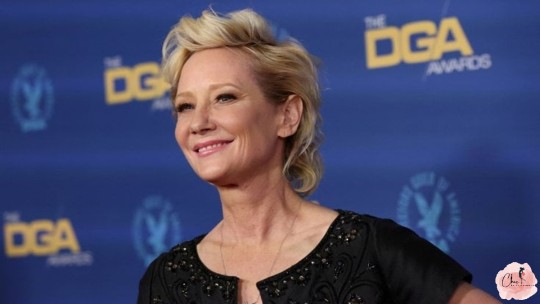
View On WordPress
#11 agosto#11 agosto morti#Anne Celeste Heche#Anne Heche#Barbara Jean Maczka#Barbara March#Darius Campbell#Darius Campbell-Danesh#Edith Newbold Jones#Edith Wharton#Franca Tamantini#Gaetano Marzotto#Hanae Mori#James Booth#Manuel Ojeda#Manuel Salvador Ojeda Armenta#Mario Feliciani#Miriam Nesbitt#Miriam Schanke#Miriam Skanke#pseudonimo di Trinidad López III#Ricordiamo#Robin Williams#Trini Lopez
1 note
·
View note
Text
Fire Island (2022)
Fire Island by #AndrewAhn starring #JoelKimBooster and #BowenYang, "a movie with this many funny people (in three cases famous comedians) should be a hell of a lot funnier than the soft, easy watch we have here", Now reviewed on MyOldAddiction.com and this week's episode of @badgaymovies
ANDREW AHN
Bil’s rating (out of 5): BB.5
USA, 2022. Jax Media, Searchlight Pictures. Screenplay by Joel Kim Booster. Cinematography by Felipe Vara de Rey. Produced by Tony Hernandez, John Hodges, Brooke Posch. Music by Jay Wadley. Production Design by Katie Hickman. Costume Design by David Tabbert. Film Editing by Brian A. Kates. Podcast: Bad Gay Movies.
Joel Kim Booster writes a modern day…

View On WordPress
#Aidan Wharton#Andrew Ahn#August Henderson#BGM Episodes#Bowen Yang#Bradley Gibson#Brian A. Kates#Brooke Posch#Conrad Ricamora#David Tabbert#Eli Bridges#Eliseo Román#Felipe Vara de Rey#James Scully#Jason Garcia Ignacio#Jax Media#Jay Wadley#Joel Kim Booster#John Hodges#John Roberts#Jonathon Timpanelli#Katie Hickman#Kenney M. Green#LGBT Cinema#Marcia Belsky#Margaret Cho#Matt Rogers#Michael Graceffa#Nick Adams#Nick Drake
0 notes
Note
::rolls up sleeves::
Alright, time for some Shire appreciation
Western Mass has:
The tallest mountain in Mass, Mt Greylock, which was the inspiration for Moby Dick (Melville’s home is in a nearby town and viewing a snow-covered Greylock gave him the idea for a white whale) as well as a poem by Oliver Wendell Holmes and a horror story by Nathaniel Hawthorne
The home of Norman Rockwell, now a museum, as well as dozens of locales (and people, although fewer as time goes by) featured in classic paintings of his
The homes of Edith Wharton, Emily Dickinson, and William Cullen Bryant, plus the Dr Seuss and Eric Carle Museums, Mass MoCA, and the Clarke Art Museum
The birthplace of basketball and basketball hall of fame as well as the locale of the first written evidence of baseball (sorry, Cooperstown fans, the Doubleday thing is a myth)
The hometowns of Penn Jillette, Misha Collins, Elizabeth Banks, plus the birthplace of Matthew Perry, and adopted hometown of James Taylor as well as numerous other celebs with seasonal homes in the area
A castle and a crapton of Gilded Era mansions
A Gilded Era theater that was hidden in the back of a paint store for half a century
Tanglewood
And, perhaps most importantly, the town with the highest number of lesbians per capita in the US (also, not coincidentally though less importantly, Smith College and a dozen or so other colleges that aren't UMass)
Official Post of Massachusetts
209 notes
·
View notes
Photo
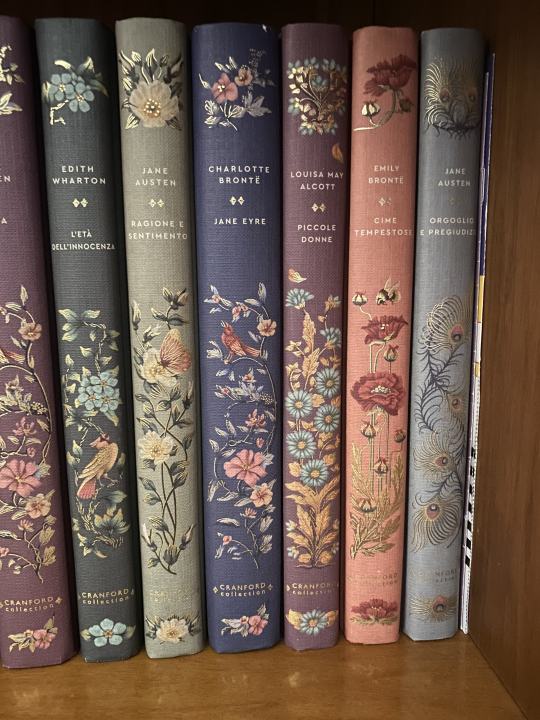
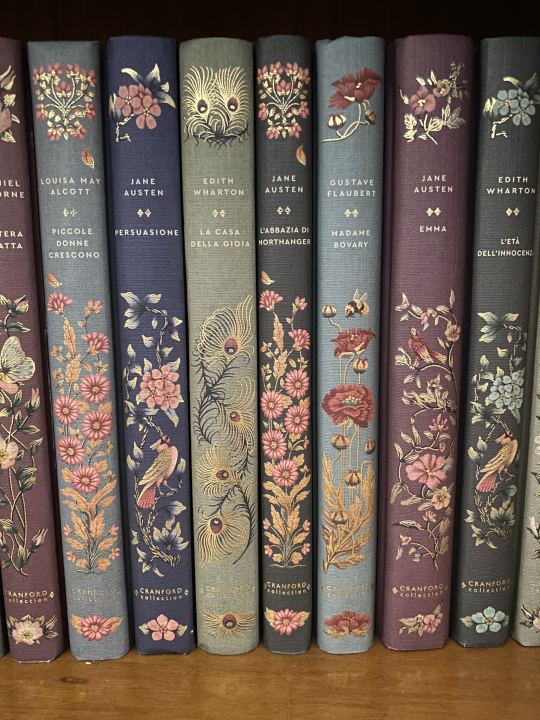
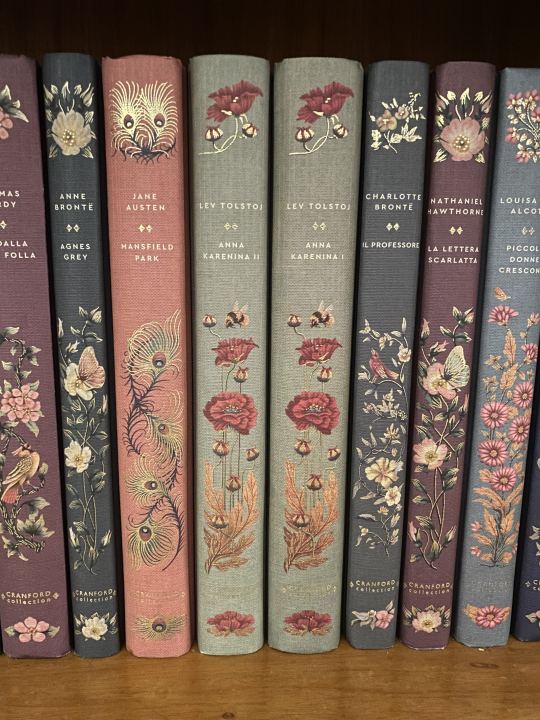

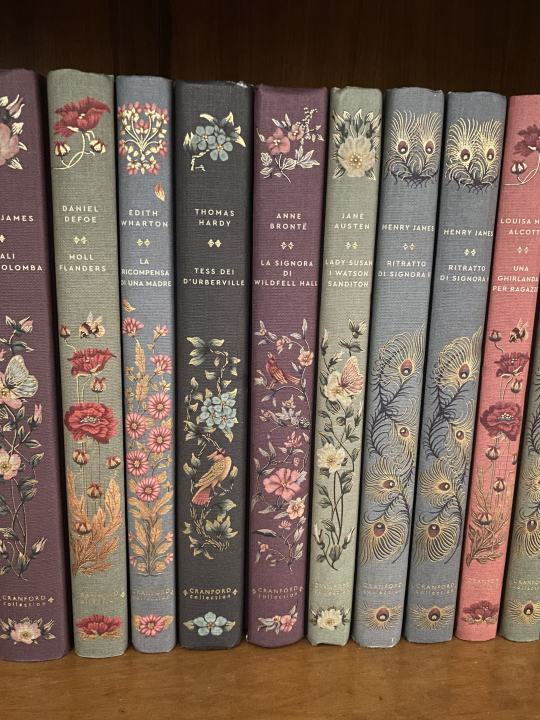
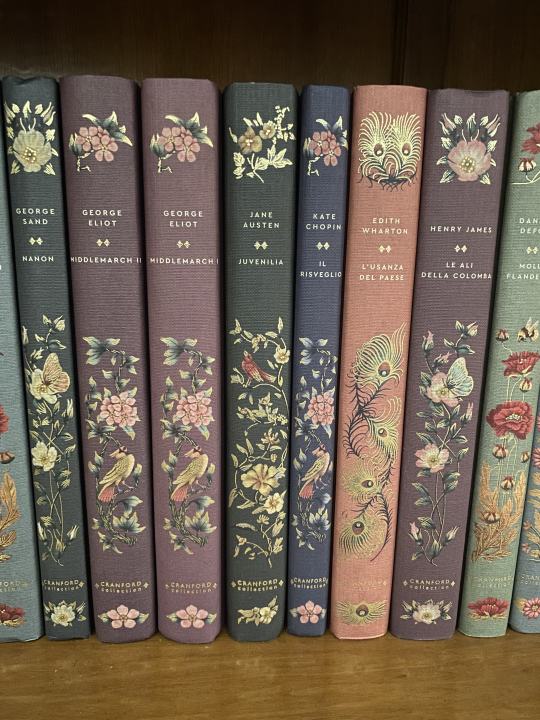


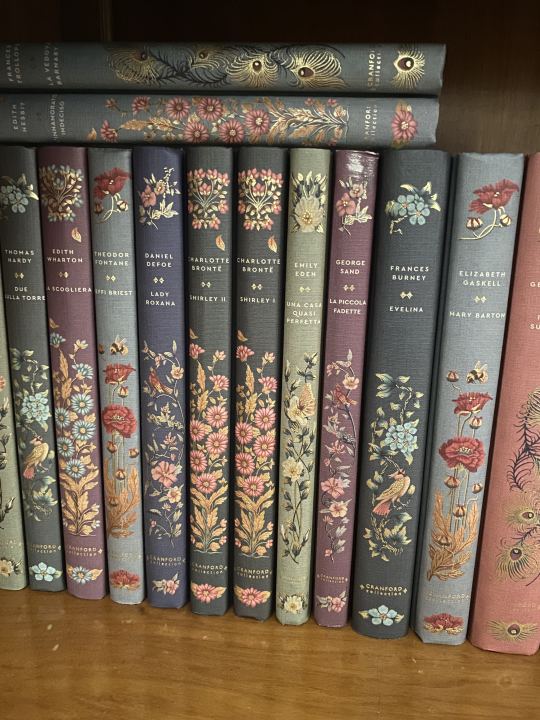

My book collection so far
Jane Austen - Pride and Prejudice
Emily Bronte - Wuthering Heights
Louisa May Alcott - Little Women
Charlotte Bronte - Jane Eyre
Jane Austen - Sense and Sensibility
Edith Wharton - The Age Of Innocence
Jane Austen - Emma
Gustave Flaubert - Madame Bovary
Jane Austen - Northanger Abbey
Edith Wharton - The House of Mirth
Jane Austen - Persuasion
Louisa May Alcott - Good Wives
Nathaniel Hawthorne - The Scarlet Letter
Charlotte Bronte - The Professor
Leo Tolstoy - Anna Karenina (Part 1)
Leo Tolstoy - Anna Karenina (Part 2)
Jane Austen - Mansfield Park
Anne Bronte - Agnes Grey
Thomas Hardy - Far from The Madding Crowd
William Makepeace Thackeray - Vanity Fair (Part 1)
William Makepeace Thackeray - Vanity Fair (Part 2)
Pierre-Ambroise-François Choderlos de Laclos - Dangerous Liaisons
Alexandre Dumas fils - The Lady of the Camellias
Henry James - Washington Square
Louisa May Alcott - A Garland For Girls
Henry James - The Portrait of A Lady (Part 1)
Henry James - The Portrait of A Lady (Part 2)
Jane Austen - Lady Susan. The Watson. Sanditon
Anne Brontë - The Tenant of Wildfell Hall
Thomas Hardy - Tess of the D’Urbeville
Edith Wharton - The Mother’s Recompense
Daniel Defoe - Moll Flanders
Henry James - The Wings of the Dove
Edith Wharton - The Customs of the Country
Kate Chopin - The Awakening
Jane Austen - Juvenilia
George Eliot - Middlemarch (Part 1)
George Eliot - Middlemarch (Part 2)
George Sand - Nanon
Henry James - The Ambassadors
Elizabeth Gaskell - Cranford
Thomas Hardy - Under The Greenwood Tree
Edith Wharton - Summer
George Sand - Indiana
Henry James - The Bostonians
George Eliot - Silas Marner
Henry James - The Golden Bowl (Part 1)
Henry James - The Golden Bowl (Part 2)
Edith Wharton - The Twilight Sleep
Emily Eden - The Semi-Attached Couple
Edith Wharton - The Glimpses of the Moon
Mary Elizabeth Braddon - Lady Audley’s Secret
George Eliot - The Mill on the Floss
Elizabeth Gaskell - Mary Barton
Fanny Burney - Evelina
George Sand - Little Fadette
Emily Eden - The Semi-detached House
Charlotte Brontë - Shirley I
Charlotte Brontë - Shirley II
Daniel Defoe - Lady Roxana
Theodor Fontane - Effie Briest
Edith Wharton - The Cliff
Thomas Hardy - Two on a Tower
Frances Hodgson Burnett - A Lady of Quality
Louisa May Alcott - Moods
Edith Nesbit - The Incomplete Amorist
Frances Trollope - The Widow Barnaby (Part 1)
#storie senza tempo#books#book collection#classical literature#literature#american literature#german literature#english literature#french literature#jane austen#russian literature#pride and prejudice#emma#sense and sensibility#edith wharton#lady roxana#moll flanders#anna karenina#lev tolstoy#bronte sisters#jane eyre#wuthering heights#the age of innocence#little women#louisa may alcott#timeless classics#romans eternels#novelas eternas#middlemarch#george eliot
247 notes
·
View notes